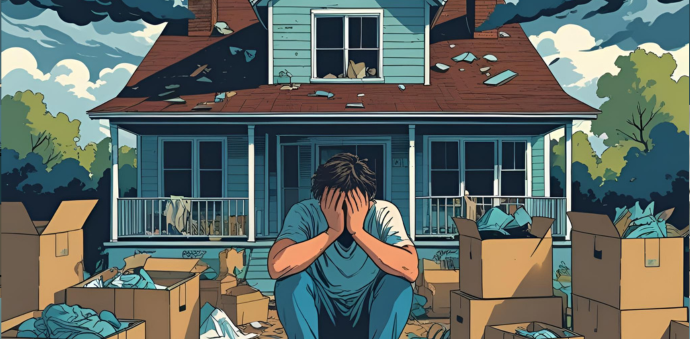
Living in a rental property that is unsafe, unhealthy, or fundamentally unlivable can be a nightmare. When your home has serious issues like persistent mold, pest infestations, or a lack of essential utilities, you might be asking, Can I move out without penalty if my rental is uninhabitable?
The answer is often yes, but it depends on your specific situation, careful documentation, and adhering to legal procedures. You have a right to a safe and habitable living space, and if your landlord fails to provide it, you may be able to terminate your lease without penalty.
An "uninhabitable" living condition means your rental property is unsafe or unsuitable for you to live in. While specific definitions can vary by state, generally, a property is uninhabitable if it risks your health and safety.
Common examples of uninhabitable conditions include:
Landlords have an "implied warranty of habitability," meaning they implicitly guarantee the property is livable, regardless of whether it's written in your lease.
Tenants have the legal right to a habitable home that meets basic safety, health, and structural standards. Landlords are legally required to maintain their properties to meet local health and safety codes.
If your rental becomes uninhabitable, your rights may include:
If your rental is uninhabitable and you're considering moving out, follow these crucial steps to protect yourself and ensure you can do so without penalty:
Begin by thoroughly documenting the issues. Take plenty of pictures and videos of the uninhabitable conditions. Include dates and descriptions. This evidence is vital if you need to take legal action.
Notify your landlord in writing about the habitability issues and request repairs. Be specific about the problems and how they affect your living conditions. Send this notice via a verifiable method, such as certified mail or email with a read receipt, and keep copies for your records. This creates a paper trail proving you informed your landlord and gave them a chance to fix the problem.
Allow your landlord a reasonable time to make repairs. Landlords are obligated to address issues promptly once they receive notice. The definition of "reasonable time" can vary based on the severity of the issue and local laws. For urgent problems like no heat or water, it's usually a matter of days.
Consider notifying housing authorities if your landlord fails to address the issue within a reasonable timeframe. Local or state housing agencies can inspect your unit, enforce building codes, and order your landlord to make repairs. Tenant rights organizations can also provide support and legal aid.
Make sure to understand your local laws. Tenant rights vary by state and local jurisdiction. Before deciding to move out, research the specific laws in your area regarding uninhabitable conditions and lease termination. This will help you understand the exact procedures you need to follow to break your lease without penalty.
If your landlord refuses to make necessary repairs, and you've followed the steps above, you may have legal recourse. This can include suing the landlord for breach of the implied warranty of habitability. You can recover the cost of repairs if certain conditions are met, such as giving the landlord notice, allowing reasonable time for repair, ensuring good quality repair, and ensuring that the amount spent was reasonable.
Living in an uninhabitable home is a severe situation that no tenant should endure. If your landlord is failing to provide a safe and healthy living environment, you have rights. Knowing how to document, notify, and leverage legal options is crucial to protecting yourself.
Contact us today for a free consultation. Our experienced tenant rights team can help you understand your specific situation, guide you through the process of documenting conditions, communicating with your landlord, and exploring the best legal path, including moving out without penalty if justified.
Don't let uninhabitable conditions compromise your health or financial well-being. Reach out now for clear answers and strong legal support.